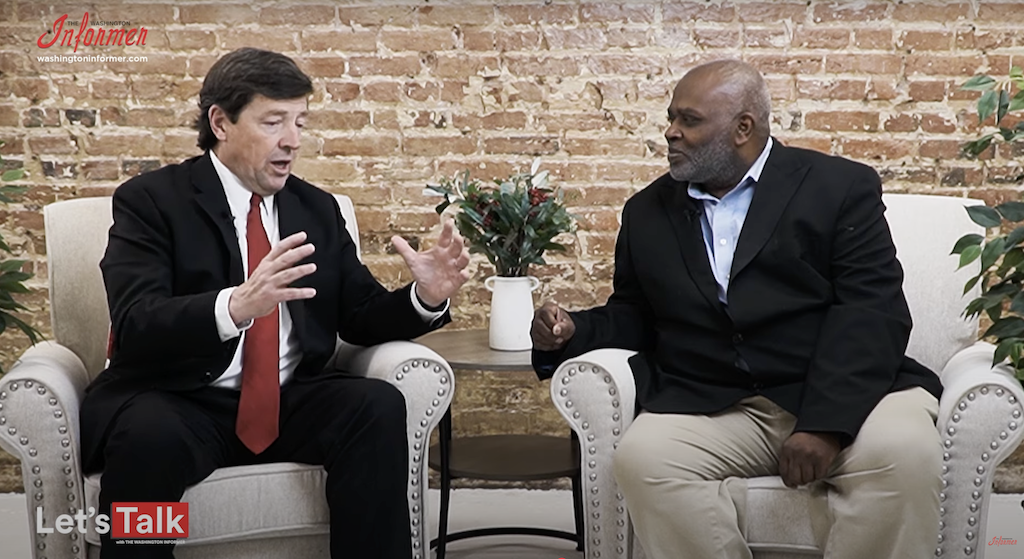Among those considering the Post’s latest staff-reduction offer is chief political writer Dan Balz.
“I love the Post and my job,” says Balz, who like other eligible journalists is over age 54, “but like virtually everyone who is around my age at the paper, I’m looking at this. But I have not made a decision and won’t until I’ve been able to sort through things.”
Also weighing the buyout offer is Tom Edsall, who has covered the story of money and politics for years. He describes himself as “eligible and considering.”
Since the buyout offer became official on April 15, reporters and editors have been meeting daily with Post officials to work out the fine points of the deal, considered generous by newspaper standards.
Caryle Murphy, who won a Pulitzer prize in 1991 for her reporting from occupied Kuwait, could be lost to the buyout. Several Food Section editors, led by Judy Havemann, are eligible. Leslie Walker, who writes the dot.com column, could go, too. Nancy McKeon, who resurrected the Food and Real Estate sections, is considering her options. She currently edits Sunday Business.
At least two business writers have decided to move on. Jerry Knight, who has covered local business since 1977 and writes Monday’s Washington Investing column, is already booking flights to Paris. Al Crenshaw, 63, is “strongly leaning toward it.” He came to the Post in 1972 and has been writing the Cash Flow column for the Sunday business section since 1987.
Paul Blustein, who covers international business, is eligible, too.
The Post hopes to reduce its staff of about 900 and 1,000 by 80 in this second big round of buyouts. The first round, in 2003, lured many experienced writers off the staff; this second offer could cut into the core staff of writers who have made the Post what it is in the post-Watergate era.
Pulitzer Prize–winning TV critic Tom Shales, 60, is a prime candidate. He’s been at the Post more than 30 years, so he’d get two years’ salary. The deal would add five years in calculating pension benefits, so Shales would get full benefits even though he’s not 65. The newspaper would continue to share medical-insurance premiums, too.
Will Shales take the deal?
“I have to see the figures on paper,” he says.
Al Kamen, author of the well-read In the Loop column, is also considering the buyout offer.
Which raises the question: Who can replace veteran journalists like these?
If Kamen leaves, who will nail the next high-ranking bureaucrat who orders his staff to cut expenses and then jets off to Italy on public funds? After Jerry Knight leaves, who will give readers the scoop on the latest local stock scam? Can anyone else in the newsroom tell the difference between Ollie Carr and Ollie North?
How many Post staffers ultimately will take the buyout package? To increase the pool of potential retirees, the Post dropped the eligible age from 55 to 54. If fewer than 80 choose the buyout, the Post will have to figure out another way to reduce staff.
The deadline to respond to the buyout deal is May 30.
















